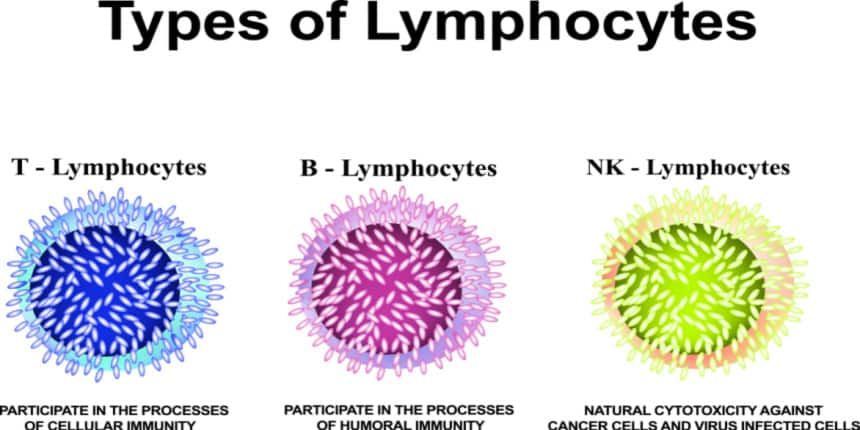B lymphocytes full form
What is Full Form of B lymphocytes ?
B lymphocytes are derived from Bursa cells, also known as B cells. They are the type of white blood cells(Leukocytes) .They are found in the blood and lymphatic systems. B lymphocytes are responsible for providing a humoral kind of immunity. Humoral immunity is the type of immunity in which B lymphocytes produce antibodies to fight against foreign particles.

The production of B lymphocytes starts from birth and continues throughout life. B cells originate and mature in bone marrow, a soft fatty tissue inside the bones. They play an essential role in providing immunity to a person. They are common types of leukocytes. B cell isolation is the separation of B cells from other cell populations. B cells are identified by their surface markers, CD19 and CD20.
Structure
B cells have a plasma membrane composed of an equal ratio of protein glycosphingolipids and carbohydrates by weight. They also include
Stage-specific markers
Antigen binding molecules
Co receptor molecules
Signal transduction molecules
Functions
The following are the functions of B lymphocytes:
Fundamental regulatory cell in the immune system.
They produce antibodies.
They support other mononuclear cells.
They contribute to inflammatory pathways directly.
They are responsible for mediating the production of antigen-specific immunoglobulin.
How Do B Lymphocytes Function?
B cells use the receptors on their surface and bind to a specific protein known as an antigen. Once they bind, they release an antibody that gets stuck on the surface of the antigen, thus preventing them from harming the human body. Then B cells present this antigen to T cells so that T cells can destroy them.
B Cell Activation
When foreign bodies enter the body, they contain antigens on their surface. B cells get activated when they recognise antigens.
Disease Affecting B cells
Sudden increases or decreases in the count of B cells is an issue of concern, and they might be the indication of diseases like:
Multiple myeloma
Blood cancer
HIV
Chronic Lymphocytic leukaemia
DiGeorge syndrome